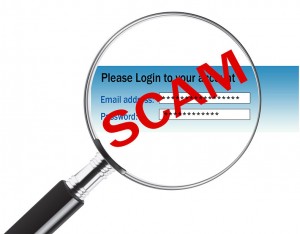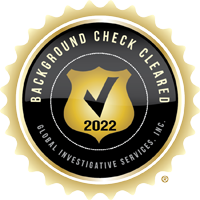 One of the many advantages of belonging to the American Association of Daily Money Managers is the informative webinars they provide. The latest one I participated in spoke of identity theft through cyber fraud and ways to prevent it.
One of the many advantages of belonging to the American Association of Daily Money Managers is the informative webinars they provide. The latest one I participated in spoke of identity theft through cyber fraud and ways to prevent it.
As we increasingly depend on electronic data to conduct our daily transactions and with our increasing use of electronic devices, cyber fraud is on the rise.
One method scammers may infect your computer is through “phishing.” A widespread email is sent to many potential victims. The email will tell you that there is a problem with a specific account or credit card, and then ask you to provide your personal information. The scammers will then use this information to commit fraud.
So how can you tell if it’s a scam email? Scam emails often look suspicious, and contain the following:
- A link asking you to provide your personal information
- Spelling or grammatical errors
- A sense of urgency to respond
- The sender, link and details of the email do not match
How can you check if you have been victimized?
- Read your bank and credit card statements as soon as they are available and report any unauthorized debits or changes immediately to that institution.
- Order a credit report from the website annualcreditreport.com. You are entitled to one free report annually. (The three credit bureaus that participate are Experion, TransUnion, and Equifax.)
- When you view this report, verify that your personal information is correct. Make sure there are not accounts you did not open, inquiries you did not make or any unexplained debts. Another valuable way to make sure you are covered throughout the year is to select one company for each one-third of the year. For example, obtain a report from Experion, then 4 months later, obtain one From TransUnion, etc.
If you find you have become a victim of cyber fraud, these are actions you should take:
- Place a fraud alert on all your credit reports.
- Contact creditors to close all accounts that have been tampered with.
- File a report with your local police and keep a copy of this report for your records.
- File a complaint with the Federal Trade Commission (ftc.gov)
- If your bank was targeted, contact them immediately so they can close the account and open a new one.
In the end, prevention is the best defense. Here are some important steps to take:
- Balance your bank and credit card statements regularly – this allows you to catch any errors and report them in a timely manner.
- Do not respond to ANY requests through the internet. If you have any doubt or suspicion, call the financial institution and ask if they requested it
- Update your computer anti-virus software daily
- Use a dedicated computer for banking and financial access only. The cost of an additional laptop may be worth saving thousands of dollars in lost income, as well as the hardship of having your identity stolen.
For more on this subject and any other daily money management services, please let us know. Files In Order is here to help.





